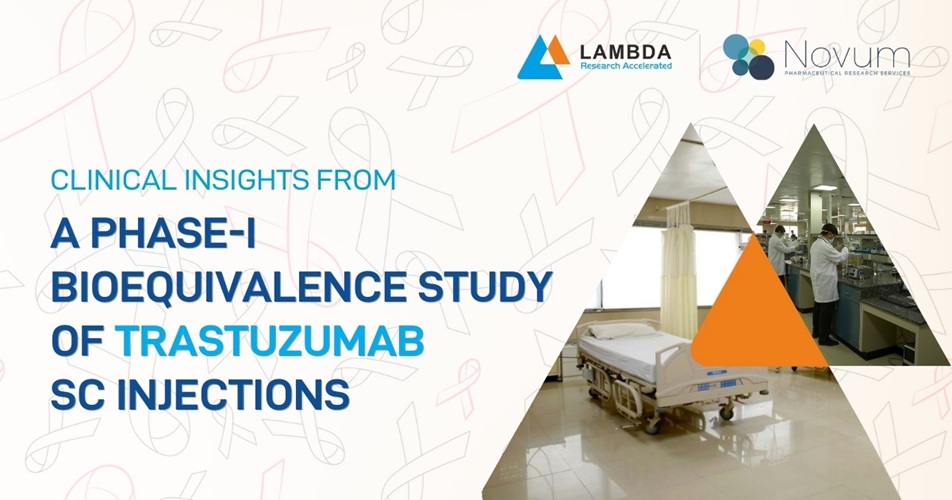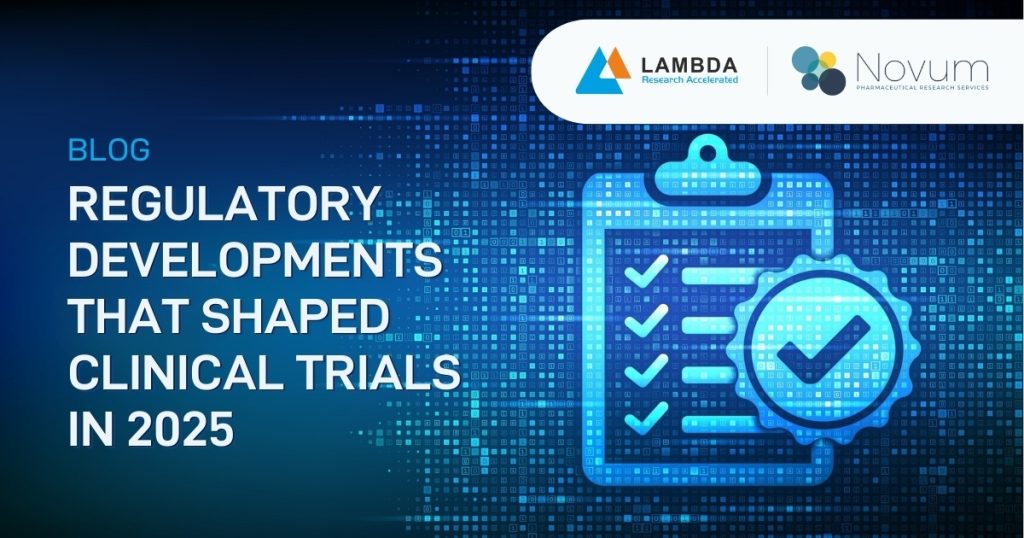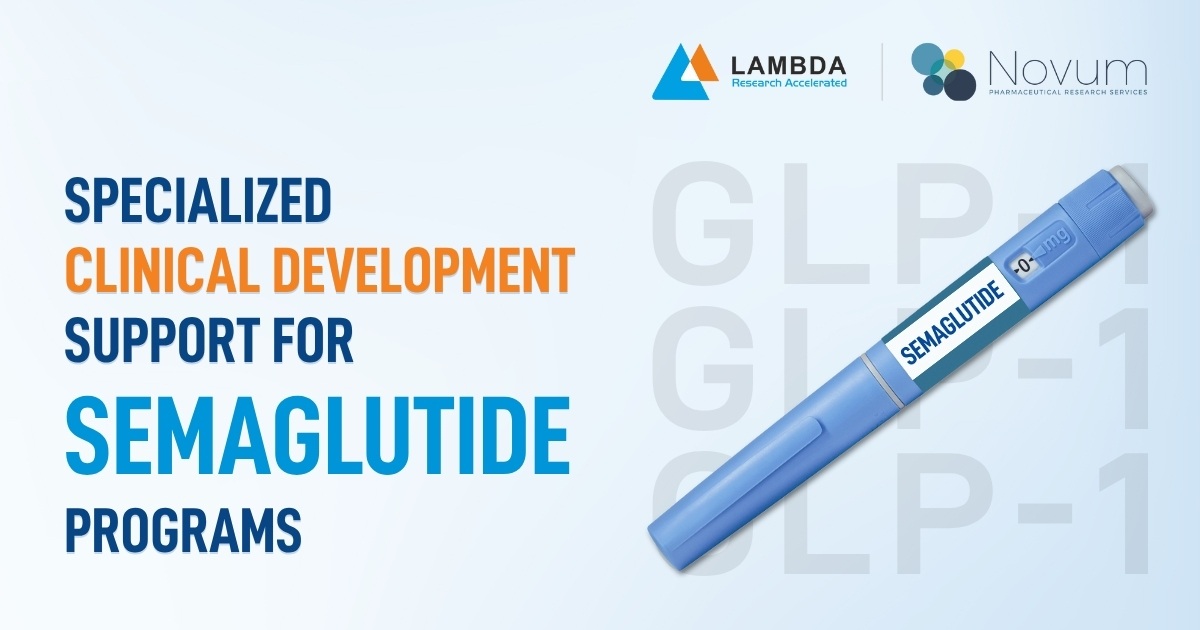This bioequivalence (BE) study was conducted to evaluate and compare the pharmacokinetic (PK) parameters of three formulations of Trastuzumab 600 mg administered subcutaneously. The study also included assessments of safety, tolerability, and immunogenicity. Executed in multiple groups in accordance with the protocol, it addressed all challenges and anticipated risks through effective planning and proactive measures. This case study outlines the approach, execution, and outcomes that supported timely, high-quality data generation for regulatory submissions.
Study Objective and Background
A globally recognized pharmaceutical company based in India, with expertise in biosimilars and specialty therapies, required a fast-track clinical study to meet accelerated global submission timelines.
This bioequivalence (BE) study was designed to evaluate and compare the pharmacokinetic (PK) parameters of three formulations of Trastuzumab 600 mg administered subcutaneously. It also included assessments of safety, tolerability, & immunogenicity.
Molecule Overview
Trastuzumab is a humanized monoclonal antibody used in the treatment of cancers that overexpress the HER2 protein, particularly HER2-positive breast cancer. The subcutaneous (SC) formulation allows for quicker and more convenient administration compared to the intravenous route, improving patient comfort and optimizing healthcare resources.
Trastuzumab binds selectively to the extracellular domain of the HER2 receptor (ErbB2), a transmembrane tyrosine kinase receptor. This inhibits HER2-mediated signaling pathways, including: RAS–MAPK pathway (promotes cell proliferation) and PI3K–AKT–mTOR pathway (inhibits apoptosis). By blocking these pathways, Trastuzumab suppresses tumor cell growth, survival, & proliferation.
Trastuzumab SC 600 mg is indicated for the treatment of:
- HER2-positive early breast cancer (as adjuvant therapy)
- HER2-positive metastatic breast cancer
- HER2-positive gastric and gastroesophageal junction adenocarcinoma
It is often used in combination with chemotherapy or other targeted therapies depending on the disease stage and treatment protocol.
Services Provided by Lambda
| Protocol development |
| Clinical study conduct (Screening, Housing, Dosing, Sample collection & study close-out) |
| Stratification-Based Randomization Using IWRS |
| Clinical Data Management |
| Bioanalysis (PK & Immunogenicity) |
| PK/Statistical analysis |
| Clinical Study Report (CSR) preparation |
| Dossier preparation for regulatory submission |
Study Highlights
| 162 Healthy Male Subjects |
| Randomized, Double-blind, Parallel design with a single SC dose |
| Total study duration of ~6 months with multiple frequent ambulatory visits. |
| Electronic data capture using BizNET (eCRF), IMPTrack and other systems. |
| SmartR software for IWRS (stratification-based randomization) |
Study Execution
The study was executed in multiple groups in accordance with the protocol and requirements. All challenges and anticipated risks were addressed through effective planning and proactive measures.
| Challenges | Solution Implemented |
|---|---|
| Sentinel dosing and multiple groups | Through meticulous scheduling and co-ordination, our dedicated team expertly navigated sentinel dosing with three-day intervals and seamlessly managed the subsequent study groups. |
| Stringent selection parameters | A thorough screening process, involving specialists for medical assessments (including 2D Echo, TMT, and cardiac markers at screening), ensured strict adherence to the inclusion and exclusion criteria for selecting suitable subjects. |
| Stratification-based randomization (IWRS) | Developed the SmartR software for stratification-based randomization, trained study staff on its use, and ensured integration with the BizNET EDC platform for efficient execution and accountability. |
| Blood sample collections for PK and immunogenicity | Implemented an optimized sampling protocol, trained staff, and used advanced systems to ensure accurate collection and timely processing. |
| Monitoring subject safety | Established continuous safety monitoring, with anesthetists and/or consultant physicians present during housing. |
| SAE management | Implemented an efficient SAE management protocol to ensure timely action and compliance with regulatory requirements. |
Conclusion
The clinical study was successfully executed within the predefined timelines, demonstrating operational efficiency and strong project coordination. It generated high-quality clinical, PK, and bioanalytical data aligned with regulatory standards, supporting the scientific rigor required for global submissions.
Leveraging Lambda’s integrated early-phase clinical research capabilities, including protocol design, trial management, data collection, bioanalysis and dossier preparation, the sponsor was able to compile a robust data package for their marketing authorization application. This comprehensive support was instrumental in meeting critical global development milestones.
Connect with our experts at BD@lambda-cro.com to leverage the extensive end-to-end capabilities of Lambda Therapeutic Research & Novum Pharmaceutical Research Services




